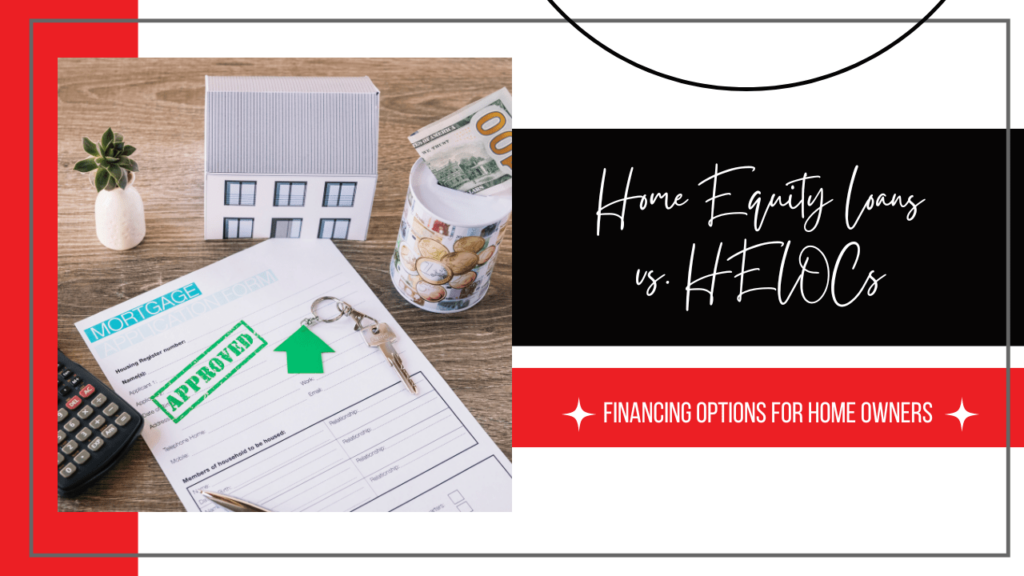
Investing in real estate is a great idea for many reasons, and one of those reasons is that you have a tangible asset that can provide a home. It’s a place to call your own. Investing and owning a home of your own is also wise because it allows you to build financial stability through equity.
For homeowners looking to leverage that equity, two key borrowing options are typically available:
Home Equity Loans and Home Equity Lines of Credit (HELOCs).
Which is your best financing option?
Defining Home Equity Loans and HELOCs
Home equity is the portion of your home you actually own — the value of your home minus any outstanding mortgage or loan balances. The more equity you have, the more money you might be able to borrow against it.
A home equity loan, sometimes referred to as a second mortgage, allows homeowners to borrow a lump sum of money which is to be paid back in fixed monthly installments over a set period. This loan uses the borrower’s equity in their home as collateral.
The HELOC functions more like a credit card, providing a revolving line of credit that you can borrow from as needed. HELOCs commonly have variable interest rates and are divided into two periods: the draw period, when you can borrow against the credit line, and the repayment period, when you must pay back what you’ve borrowed.
Choosing a Home Equity Loan or a HELOC
Deciding between a home equity loan and a HELOC primarily depends on your financial needs.
If you need a significant sum of money for a one-time project, like a renovation or covering wedding expenses, a home equity loan could offer the structured payments for budgeting ease. You’ll get a fixed interest rate, a lump sum payment, and consistent repayment terms.
On the other hand, if you need ongoing access to funds, perhaps for college tuition payments or ongoing renovations or as a financial safety net, a HELOC offers flexibility and recurring access to your credit line. Typically, you’ll only have to pay interest on the funds you actually use.
No matter which option you lean towards getting, it’s critical to consider the following:
- Ability to Pay. Ensure you can handle the monthly payments, and make sure you have an understanding of what they are before you close the deal and accept the funding.
- Costs & Fees. Review closing costs and any additional fees. These aren’t always clear, so make sure you’re working with a lender you trust.
- Interest Rates. Take note of current rates and how they can change over time. The amount of interest has a big impact on how expensive your loan is.
- Future Plans and Investment Goals. If you plan to sell your home soon, borrowing against your equity might complicate the sale. You won’t earn as much as you might expect.
Both home equity loans and HELOCs offer convenient ways to tap into the value of your home, but you’ll have to assess each option based on what you need the money for and how quickly you plan to repay it. Take into account your financial situation and long-term goals before making a decision.
 We always tell our clients that when it comes to utilizing your home’s equity, it’s not just about the immediate influx of cash — it’s about managing a valuable asset over the long term.
We always tell our clients that when it comes to utilizing your home’s equity, it’s not just about the immediate influx of cash — it’s about managing a valuable asset over the long term.
If you’d like some help working through this decision, contact us at ZenPro Property Management.
